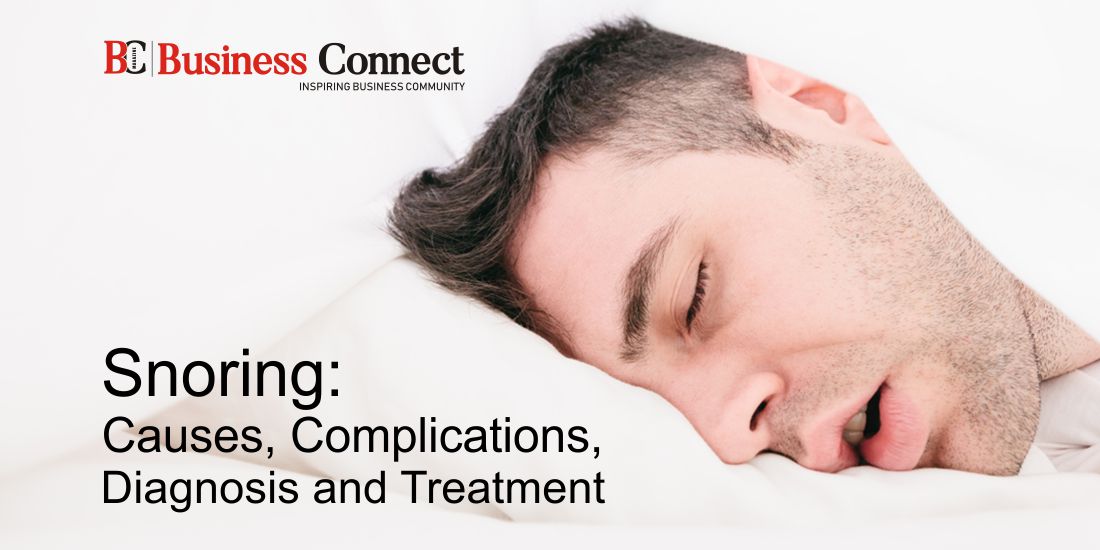Snoring: Causes, Complications, Diagnosis and Treatment
Written by Jaya Pathak
Snoring is the harsh sound from nose or mouth that occurs when breathing is partially obstructed while sleeping. Snoring happens when air can’t flow easily through the mouth or nose. When the air is forced an obstructed area, soft tissues in the mouth, nose and throat bump into each other and vibrate.
Snoring can be a symptom of sleep apnea, a potentially serious sleep disorder. There are several causes of snoring including nasal congestion, obesity, age, genetics, alcohol consumption, smoking and sleeping position.
The main type of sleep apnea are:-
- Obstructive Sleep Apnea (OSA) which is the more common form that occurs when throat muscles relax and block the flow of air into lungs.
- Central Sleep Apnea (CSA) which occurs when the brain doesn’t send proper signals to the muscles that control breathing.
- Complex Sleep Apnea (CSA) which happens when someone has OSA diagnosed with a sleep study that converts to CSA when receiving therapy for OSA.
Sleep Apnea can lead to various complications such as high blood pressure, heart problems, diabetes, liver problems,metabolic syndrome and fatigue. Diagnosis of sleep apnea may involve a sleep study, and treatment options include CPAP therapy, oral appliances, surgery and lifestyle changes.
Treatment of Snoring and Sleep Apnea:-
The treatment of snoring and sleep apnea depends on the severity of the condition and its underlying causes. The most common treatments include:-
- Lifestyle changes:- Certain lifestyle changes may help reduce or eliminate snoring, including:-
- Weight loss:- Obesity is a major risk factor for snoring and sleep apnea, so losing weight can help reduce or eliminate snoring.
- Avoiding alcohol and sedatives:- Alcohol and sedatives relax the muscles in the throat and can increase the risk of Snoring and Sleep Apnea.
- Changing sleep position airway pressure (CPAP) therapy:- CPAP therapy involves wearing a mask over the nose or mouth during sleep. The mask is attached to a machine that delivers a continuous stream of air to keep the airways open.
- Oral appliances:- Oral appliances are devices that are worn in the mouth during sleep to help keep the airway open. These devices can be particularly effective for people with mild to moderate sleep apnea.
- Surgery:- Surgery may be recommended in some cases of snoring and sleep apnea. Surgical options may include removing excess tissue from the throat, correcting structural abnormalities in the nose or throat, or repositioning the jaw.
- Medications:- There are no medications specifically for the treatment of snoring and sleep apnea, but medications such as nasal corticosteroids may help reduce inflammation in the nasal passages, which can improve breathing and reduce snoring.
It is important to consult a doctor or sleep specialist for an accurate diagnosis and appropriate treatment plan for snoring and sleep apnea. If left untreated, sleep apnea can increase the risk of serious health problems such as heart diseases, stroke, diabetes etc. Complications associated with untreated sleep apnea can be serious.
Therefore, it is important to seek medical attention if you suspect you may have sleep apnea or if you experience any symptoms such as excessive snoring or daytime fatigue. A sleep study may be necessary to determine the severity of the condition and the most appropriate course of treatment.





